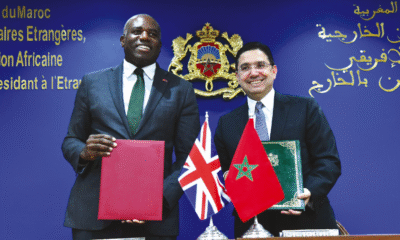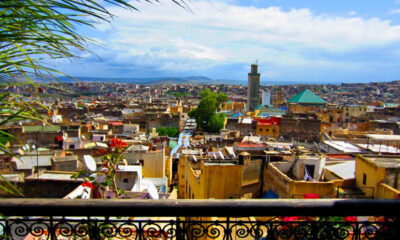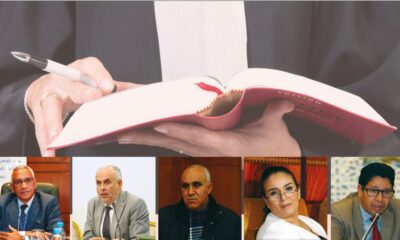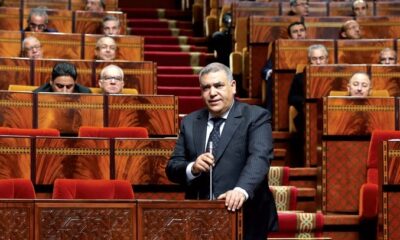Kingdom
Political Scene: Women Partisans on the Front Lines
The issue of women is not the exclusive domain of associations, whose vital role is undeniable. The contributions of women’s organizations affiliated with political parties deserve recognition. Evidence in practice. A comprehensive overview.

Yes, they are undeniably present on the political stage. And not just within the realm of associative activism. Nor are they merely decorative figures on the shop windows of partisan banners. Moreover, their presence is neither circumstantial nor contingent on societal hot-button issues, as they—though not all, of course—work tirelessly year-round. They are the women’s organizations of political parties.
Suffice it to say, we must correct misconceptions that reduce women’s involvement to actions led by certain associations stamped as ‘feminist.’ Even if one could argue that underreporting obscures the true value of efforts led by many partisan women’s organizations on the ground.
This contrasts sharply with the early days of the feminist movement in its associative form—though most associations maintained, to varying degrees, ties to political banners. Or, at the very least, these associations included women affiliated with political parties.
Now, unlike a past era when parties ‘used’ women on the eve of elections as ‘standard-bearers’ or ‘organizers of informal gatherings in homes,’ times are gradually changing. For the simple reason that society is evolving!
The Debate on Moudawana Reform Takes Center Stage
Indeed, nearly all political parties have, in recent years, established organizations entirely dedicated to women, now at the forefront of battles for equality and rights.
Since the public debate on reforming the Family Code began, there has been a resurgence of voices from partisan women. Examples? There are plenty. Over recent weeks, the dozen coordinations within the National Federation of RNI Women, led by Amina Benkhadra, have mobilized across all regions of the Kingdom.
This effort, as Zayna Chahim, head of the Fez-Meknes Regional Coordination, explains, focuses on dispelling misinformation—particularly that ‘trivialized’ on social media—through awareness campaigns about the proposed Family Code reforms.
In parallel, another organization on the political landscape—though with ‘a distinct approach rooted more in advocacy’—has grown increasingly visible in recent months: the women’s wing of the Socialist Union of Popular Forces (USFP).
Notably, on February 27, the USFP Women’s Organization, headed by Hanane Rihab, held a seminar featuring lawyers from the ‘Party of the Rose’ to discuss the Family Code reforms. This event is part of a broader series of debates on the topic held nationwide.
What About the Others?
The women of the Istiqlal Party are far from idle. Under Khadija Zoumi’s leadership, the Istiqlal Women’s Organization is prioritizing grassroots social initiatives under the party’s ‘2025: Year of Volunteering’ program.
Actions? Following directives from the party’s general secretariat, Istiqlal Women toured multiple Moroccan provinces throughout February, establishing new branches in previously underserved areas.
At the Authenticity and Modernity Party (PAM), the approach differs slightly but remains aligned with broader trends. Under Kouloub Faitah’s leadership, the women’s wing collaborates closely with regional secretariats to explain proposed reforms, albeit ‘without rushing the pace.’ Their last meeting took place in early January.
In contrast, apart from sporadic appearances, the Justice and Development Party (PJD) Women’s Organization remains overshadowed by the ‘Zaim’ (leader). Their operational mode revolves around ‘permanent grassroots engagement,’ viewing all public spaces—from mosques to hammams and neighborhood networks—as platforms.
Lately, members of this organization, led by Saada Boussif, have focused their energy on attacking critics of their stance on Moudawana reform through all available channels, starting with social media.
Speaking of social media: this is where the ‘heat’ is most intense. Yet, it seems the call of microphones and cameras will soon reclaim its place.













